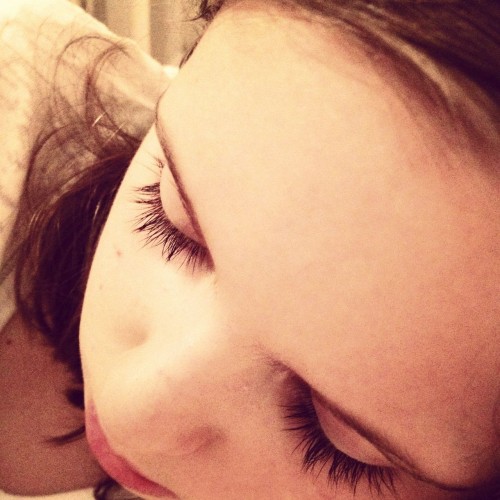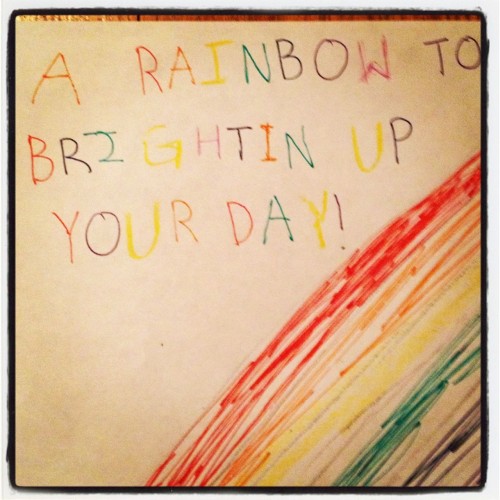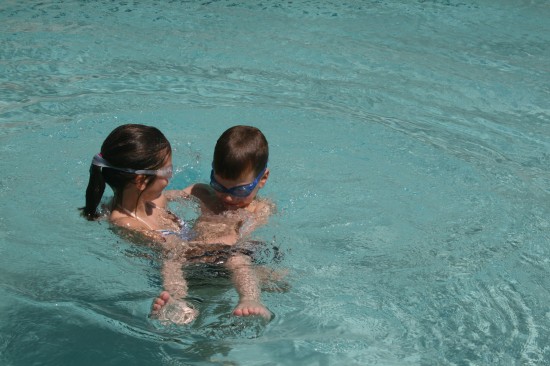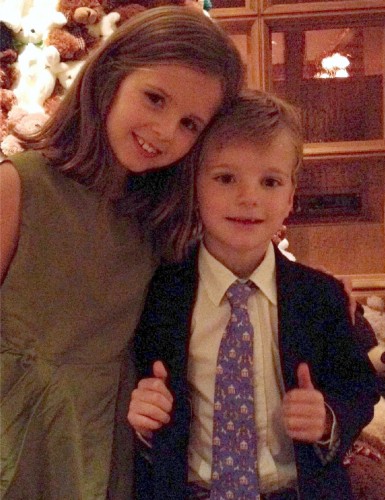
Grace is such a liminal creature right now, straddling girlhood and tweendom, the baby she was and the young woman she’s becoming at warp speed both visible in her bottomless brown eyes. I look at her and it takes my breath away, the dizzying identification, the breakneck pace with which almost 10 years have rushed by, the inevitability, somehow, that she and only she would be my daughter.
I read two posts over the weekend that brought me to breathless, gasping tears with their evocation of what lies ahead of me. Of us, Grace and me. Launa’s essay, On Heartache, reminded me how very much growing up of my own I have to do before I am able to effectively mother Grace through the next several years. I know I am not up, yet, to the challenge that Launa elucidates:
Because this is what it means to be a good teacher, and a good mother, to adolescent girls. It means to hold your own self together, to endure and be strong and be both firm and loving, so that you can be the adult they need you to be. Even when it stings the most, we mothers and teachers have to be stalwart and certain in the boundlessness of our love and the firmness of our boundaries.
Oh, oh, oh. I am still so immature myself, as a woman and a mother, and this strength and firmness seems far out of my grasp. The boundlessness of my love, that part, I’ve got down. The rest of it, I need to work on, and I am immensely grateful for Launa’s wise and articulate counsel as I move, just behind her, through the myriad stages, each full of an amalgam of heartbreak and wonder that I had never imagined, of mothering a daughter.
And then I read Katrina’s stunning post In Awe, about watching her son in his element, about observing the flowering of the innate skills and passions that she glimpsed in him early on, when he was a two year old toddler. Katrina’s a mothering role model for me, there’s no question, and each and every piece of her writing moves me to tears as it shifts something heavy and essential inside my chest. She puts into words the challenges and glories of this road, of the effort to remain steadfast and of the need to believe in what we know to be true of our children better than anyone else I know.
And what is our real job as parents, if not first to nurture the beings entrusted to our care, to have faith in their inchoate processes of growing and becoming, and then to show up, again and again, for as long as we are able, to bear grateful witness to their unfolding destinies?
It is this faith, and this showing up, that is central to my life now. I watch Grace and Whit as they stretch into the beings they have always been, leaning into what I know of them, even when they behave in ways that I dislike or as they begin to explore where the limits are. They still look back over their shoulder to make sure I’m watching them, and as much as this can feel like a burden – I have to watch everything – I also know these days are precious, and numbered. What Launa and Katrina remind me, though, is that even when Grace and Whit roll their eyes and push me away, I need to keep watching, witnessing with forbearance, trusting, loving, even – perhaps most of all – when I doubt that they notice or care.
I’ve written before about my conviction that my children do not belong to me, shared how deeply I’m honored to be the passage they chose to come through on their way to the great wide open of this world. It’s a privilege beyond expressing to watch them flower, to watch them grow, and while I know that there is more shocking bittersweetness ahead, it’s all worth it.
Some days I can do nothing other than kneel, press my forehead to the cold window, watch the setting sun turn the sky orange and pink, and whisper my gratitude. My gratitude for these children of mine, for this ordinary and painful and startlingly lovely life, for these friends and sages – today, and often, Launa and Katrina – whose words give me solace, comfort, and inspiration. Thank you, thank you, thank you.




